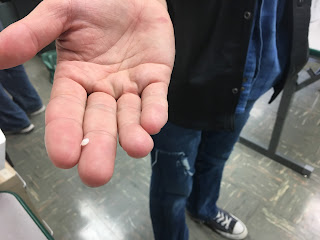But, no worries! One of the things I want my students to feel comfortable with is asking for help, so I got to model this behavior in order to get the 3-D printer up and running. I asked our high school technology support specialist (and 3-D printing enthusiast), Mr. Loveless, to help us out.
 |
| I didn't take a picture of Mr. Loveless, but this is pretty close. |
Asking for help has always been hard for me, and I'm sure I'm not alone. When you ask for help, two things happen:
- You potentially inconvenience someone. I hate this. For example, I would much rather walk a long, circuitous route around a person in my way instead of simply asking them to excuse me and force them to move. I'm sure this reveals something interesting about my psychological make-up, but I'd rather not explore it right now.
- Perhaps more insidious, than mere inconvenience, you have to admit you don't know how to do something. Like many precocious children, I grew up accustomed to being (or at least feeling like) the smartest person in the room. Of course the only way to maintain this status is to avoid situations in which you aren't the smartest person in the room. Not great for personal development. Also, impossible.
Because I've been teaching for more than thirteen years, I know that many of my students also are afraid of being inexpert inconveniences. This is no way to go through life because it leads to a constant cycle of avoidance! That's one of the reasons why I think the Maker Movement is so beneficial for kids--part of being a part of the Making community is getting help when you need it and providing it in turn.
So my students and I couldn't set up the 3-D printer. Surprise! Possessing one 3-D printer for a few days didn't suddenly make us proficient through osmosis. But we knew someone who was able and, thankfully, willing to help us. And now there's a lovely plastic cat formulating as I type.

